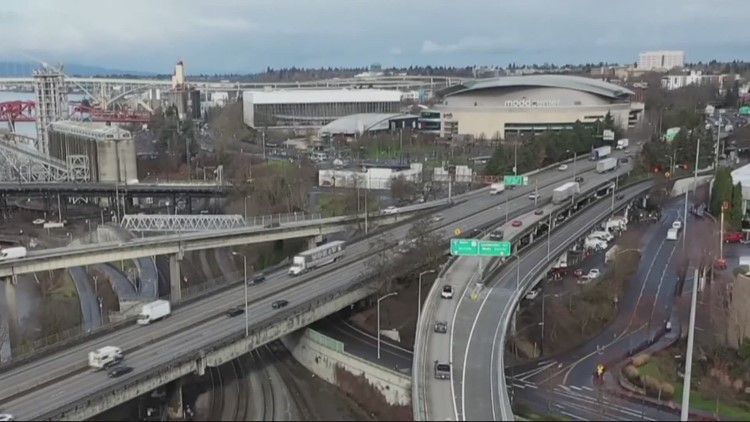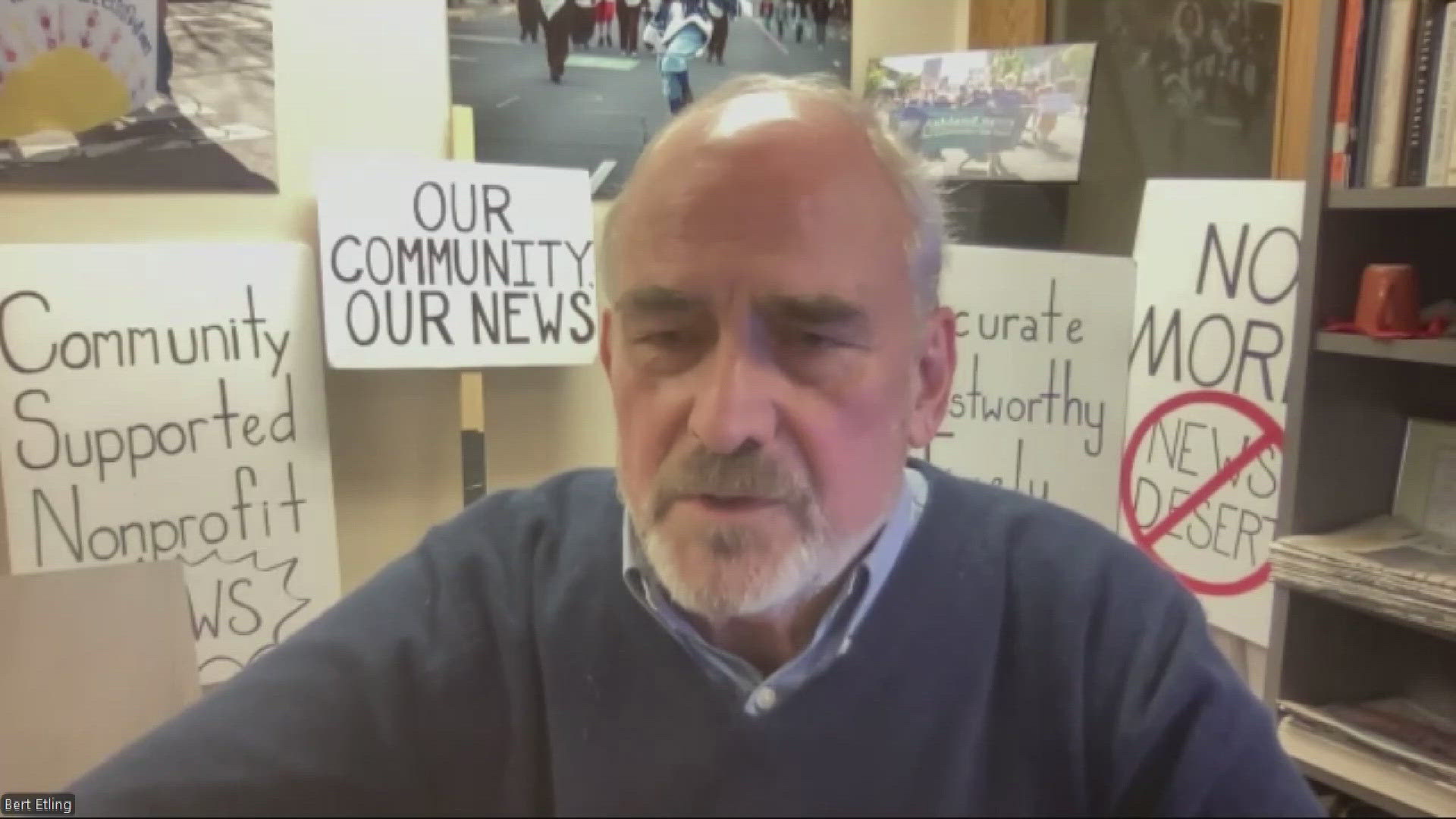PORTLAND, Ore. — The Oregon Department of Transportation has been hit with a new lawsuit aimed at halting a planned project to overhaul Interstate 5 in Portland's Rose Quarter, adding additional lanes on I-5 between the junctions with Interstates 405 and 84 and building covers (also called lids or caps) over the freeway to reconnect the surrounding Albina neighborhood.
The Eliot Neighborhood Association and the advocacy groups No More Freeways; Neighbors for Clean Air, Oregon; SW Washington Families for Safe Streets and BikeLoudPDX jointly filed the lawsuit last week, which argues that the current project design violates the climate goals in Portland's Comprehensive Plan and Metro's Regional Transportation Plan.
A news release from the groups indicates that they support the planned freeway caps, but not the auxiliary lanes that would be added beneath them; it states that No More Freeways wants ODOT to consider "alternatives to build these caps and remediate the neighborhood without the additional freeway lanes and attendant negative consequences."
"We filed this lawsuit because state law requires ODOT to follow the city’s clean air and climate goals," No More Freeways spokesperson Chris Smith said in a statement. "ODOT shouldn’t be allowed to advance a project that brazenly violates the city’s adopted plans."
Some of the plaintiffs have filed previous lawsuits over the project; No More Freeways, Neighbors for Clean Air and the Eliot Neighborhood Association first sued ODOT in 2021, arguing that the agency had violated the federal environmental review process. In a second lawsuit, No More Freeways argued that the project was out of step with Portland's Comprehensive Plan.
Both previous lawsuits have been voluntarily withdrawn, according to the news release, but the groups opted to file their new lawsuit and renew the Comprehensive Plan argument in response to the Federal Highway Administration granting approval for the project earlier this year.
Asked for comment, ODOT said it doesn't comment on active litigation.
Years of stops and starts
ODOT has billed the project as a solution to regional freeway system bottleneck that will decrease crashes in the corridor, but critics have argued that it will worsen local air quality and undermine Oregon's goal of reducing carbon emissions to combat climate change.
The project hit a roadblock in 2020 when the nonprofit group Albina Vision Trust withdrew support, prompting the city of Portland to walk away, too. The group had been advising ODOT on the goal of reconnecting the neighborhood, but said the agency wasn't taking its input seriously.
ODOT eventually regained support from both parties after switching to a new design plan with substantially larger caps over the freeway — but that change in turn prompted the Federal Highway Administration to rescind its approval for the project in early 2022, saying that the new design was too different from what the federal agency had approved back in 2020.
The FHWA re-approved the project earlier this year after ODOT redid part of the environmental review process using the new design, and the decision came just a few days after the U.S. Department of Transportation announced that it would award Oregon nearly half a billion dollars for the highway cover portion of the project.
Officials including U.S. Sen. Jeff Merkley were quick to claim that the $488 million would work as a "down payment" to finish design work and start construction, but the project still faces rising costs and a large funding gap, with the price tag reaching an estimated $1.5 billion to $1.9 billion as of about a year ago.
ODOT originally intended to fund the project using a mix of $560 million allocated by the state legislature in 2017 and future tolls on Portland-area freeways, but the initial money had to be split with other projects that have since run into their own funding crunches, and Gov. Tina Kotek halted the still-in-development tolling program earlier this year.



